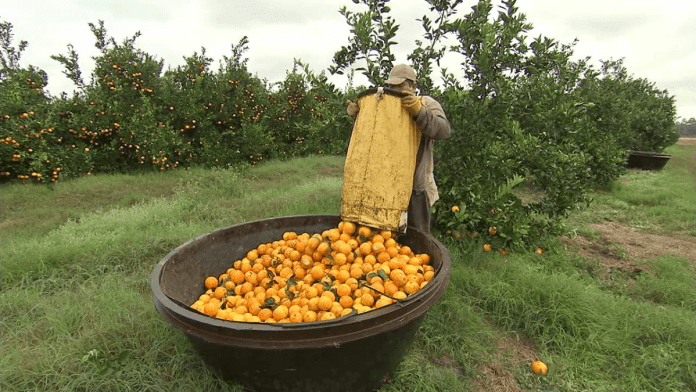News in Brief:
– Orange juice prices have nearly doubled on the Intercontinental Exchange due to adverse weather and diseases affecting Brazil’s orange crops.
– South African growers can benefit from higher prices by producing more juice, but aging port infrastructure may hinder exports.
The global agricultural market has been abuzz with the recent spike in orange juice prices. This increase has far-reaching implications for farmers worldwide, including those in Nigeria.
Here, we will look at some of the factors contributing to this surge, especially and what it means for growers everywhere.
Brazil, the world’s leading orange juice producer, has been hit hard by unfavourable weather and disease. These issues have severely impacted orange crop yields, leading to a significant reduction in supply.
The unpredictable and extreme weather conditions, including droughts and storms, have damaged crops. Meanwhile, ctrus greening disease, also known as Huanglongbing (HLB), a bacterial infection that affects orange trees, has reduced fruit quality and quantity.
Opportunity for South African growers
South Africa, the world’s second-largest citrus exporter, could benefit from the current market conditions. Justin Chadwick, CEO of the Citrus Growers Association, suggests that local growers can capitalise on the higher prices by diverting some of their fruit towards juice production. By converting marginal fruit to juice, farmers can add value to their produce and increase revenue.
On the Intercontinental Exchange in New York, orange juice futures have nearly doubled in price over the past year, a report said. This increase reflects the reduced supply from Brazil. On South Africa’s side, the price of processed orange juice has risen from around R1,000 ($53) a ton to over R3,000 ($159) a ton.
Despite opportunities, there are concerns about South Africa’s export infrastructure. Transnet’s port failures in 2023, although not affecting the last citrus season, could pose risks for the upcoming season.
For example, aging port equipment and lack of investment could hinder export efficiency. Also, without improvements, future export cycles may face significant delays and increased costs.



